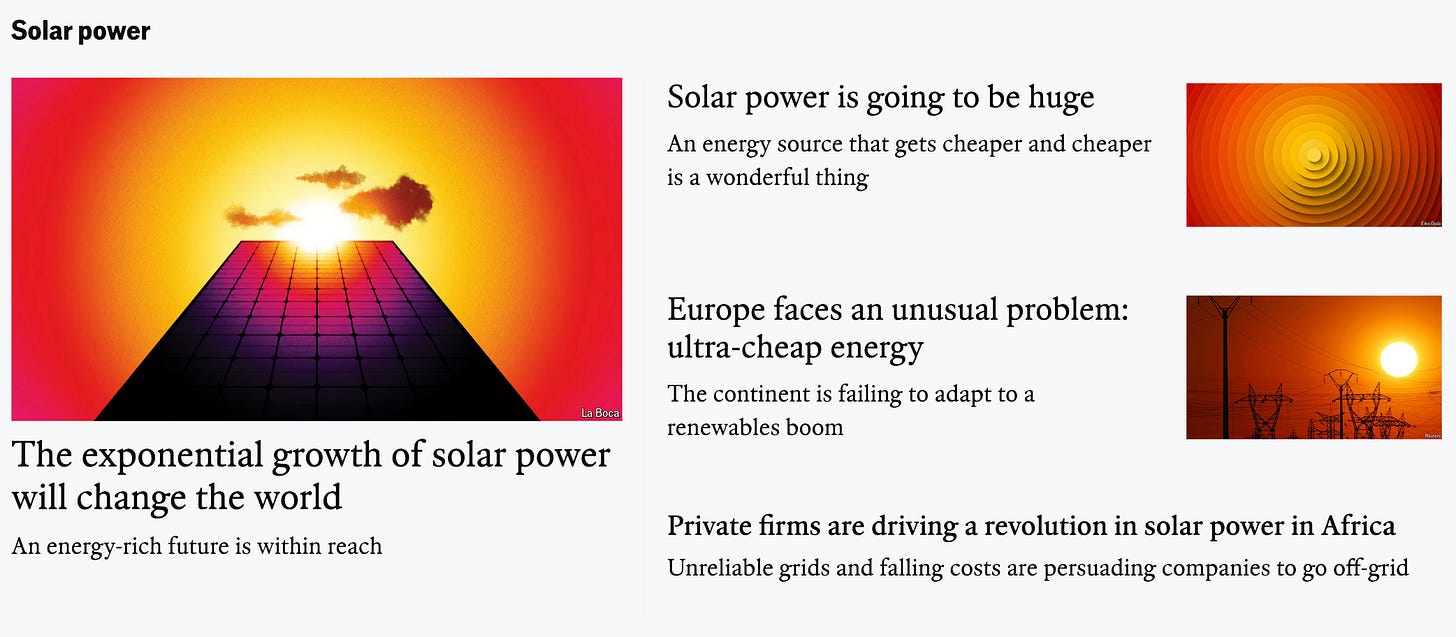No, Solar Isn’t Cheap
A guide to busting this pernicious myth.
“Reality is merely an illusion, albeit a very persistent one.” – Albert Einstein
In a properly functioning democracy, journalists use fact-based reporting to keep the public properly informed and hold elected officials to account. Absent such neutral refereeing, democracies tend to malfunction, succumbing to the forces of single-party rule, which inevitably leads to mass corruption and loss of faith in the system. Contemporary political parties might answer to different names and disagree with each other on a few issues, but such is largely theater that serves to deflect attention from the enrichment the political elite are helping themselves to at the public trough. A pliant media is necessary for such boorishness to flourish.
The public’s trust in the media is thus among the best metrics to gauge the health of a country’s political engine, and recent polling data in major Western nations paints a grim picture. In the US, trust in the media has reached an all-time low. According to Gallup, “the share of Americans who have no confidence at all in the media has surpassed the percentage with a great deal or fair amount of trust,” and more than two-thirds of the populace holds the media in very low regard.
Things are no better in the United Kingdom, which recently “saw the biggest drop in trust in the media and was the least-trusted out of 28 countries surveyed for the latest Edelman Trust Barometer.” While the election in the UK is being reported as a collapse in support for the ruling Conservative Party and a landslide for Labour, we view it as a unification between the two, as there is precious little difference in their respective policy platforms. In a first-past-the-post parliamentary system, it is far better for the ruling class to coalesce around a single party. Prime Minister Rishi Sunak’s early election call is sensible in this light.
The traditional financial press has not spared itself from a similar collapse in trust, driven in large part by its coverage of the so-called green energy transition. The tone is consistent: no matter the impact on the average voter or what the laws of physics dictate, fossil fuels are bad, wind and solar are good, and a utopia awaits once the West rids itself of dirty energy. Take the British magazine The Economist, a stalwart of elitist thinking and a uniquely consistent contrarian indicator. The cover of its June 22nd edition boldly declares “The Dawn of the Solar Age,” and the issue is bulging at the seams with hollow claptrap.
Our favorite article of the bunch is “Europe faces an unusual problem: ultra-cheap energy,” a headline that gaslights the reality of Europe’s ongoing energy crisis and rapid deindustrialization. It opens with a familiar claim of the pro-renewables crowd:
“Owing to the rapid spread of solar power, Spanish energy is increasingly cheap. Between 11am and 7pm, the sunniest hours in a sunny country, prices often loiter near zero on wholesale markets (see chart). Even in Germany, which by no reasonable definition is a sunny country, but which has plenty of wind, wholesale prices were negative in 301 of the 8,760 tradable hours last year.
As solar panels and wind farms take over Europe, the question facing the continent’s policymakers is what to do with all the power they produce. Ultra-low—and indeed negative—prices suggest that it is not being put to good use at present, reflecting failures in both infrastructure and regulation.”
Claims that renewable forms of energy are the cheapest are parroted all over social media and even within a few high-profile Substack publications. Many believers are people who should know better, and then there’s always that boastful relative who thinks a few panels on the roof and a spare electric vehicle more than offset the totality of his carbon footprint. Next time such virtue is peacocked in your presence, you’ll have a set of powerful arguments to refute them. Solar is anything but cheap—let’s find out why.



